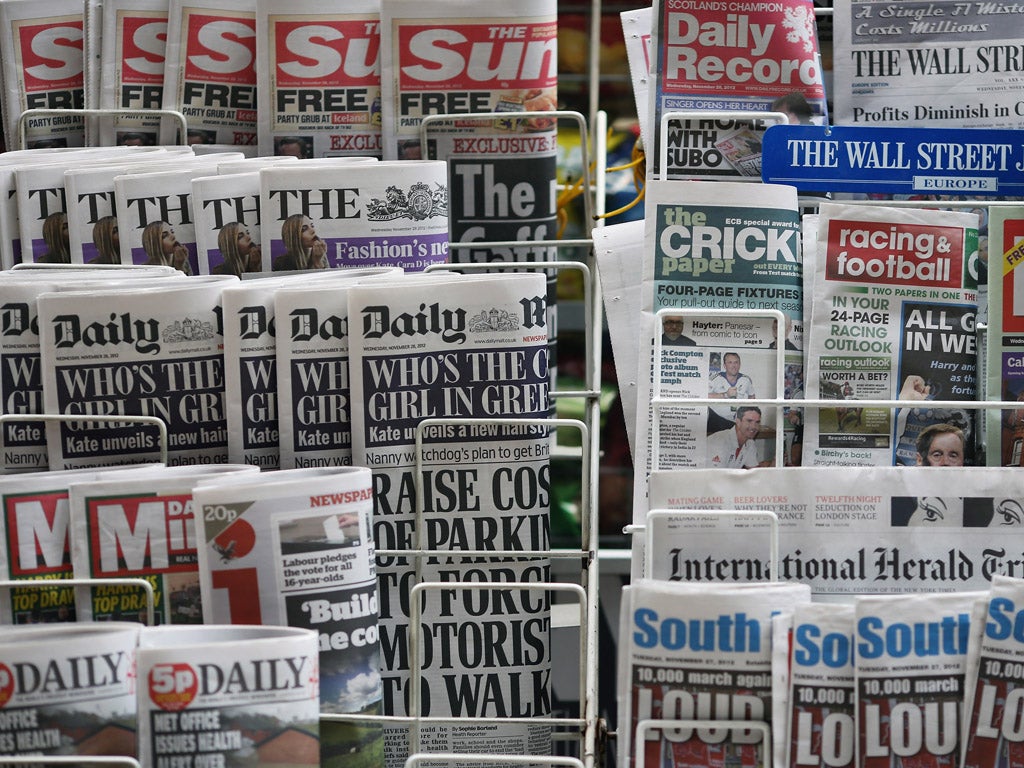Don't be too hasty in writing off newspapers
Not only is Wi-Fi unnecessary to make one work, papers are a bulwark of democracy, vital for holding the rich and powerful to account


Your support helps us to tell the story
From reproductive rights to climate change to Big Tech, The Independent is on the ground when the story is developing. Whether it's investigating the financials of Elon Musk's pro-Trump PAC or producing our latest documentary, 'The A Word', which shines a light on the American women fighting for reproductive rights, we know how important it is to parse out the facts from the messaging.
At such a critical moment in US history, we need reporters on the ground. Your donation allows us to keep sending journalists to speak to both sides of the story.
The Independent is trusted by Americans across the entire political spectrum. And unlike many other quality news outlets, we choose not to lock Americans out of our reporting and analysis with paywalls. We believe quality journalism should be available to everyone, paid for by those who can afford it.
Your support makes all the difference.I chaired a debate on the aftermath of the Leveson Inquiry the other night, and among the panel there was absolute agreement on one assertion: that whatever form regulation of the newspaper industry takes, whether underpinned by statute or not, this will be nothing more than a short-term fix.
Not because recidivist journalists will flout the new arrangements, but for the reason that newspapers themselves won't be around for that much longer. It was rather shocking to see the panellists (a former Cabinet minister, an eminent lawyer, a TV personality, and a press commentator) all nod in nonchalant agreement at the proposition, and I immediately abandoned the role of impartial invigilator to take issue with them.
People have been forecasting the death of newspapers for decades, I said, and while agreeing that the printed media faces some serious challenges (not the least of which is constant predictions of its forthcoming demise) there is no certainty that future generations will choose electronic devices to the exclusion of newspapers, which will continue to have tradition, authority and portability.
Will books die out as a result of e-readers? Did the invention of the camera mean the end of landscape painting? What's more, I said, if a Martian stepped on a commuter train or a Tube at rush-hour, he would be awestruck at the sight of almost everyone in the carriage reading a newspaper. What is this phenomenon, he would ask? You don't need to plug it in, you don't need to be in a Wi-Fi zone, and it takes the mass of information available on the Net, curates it, and re-presents it in a smart format that you can carry around with you everywhere.
I accept that many, if not most, of those people on the train are not actually paying for their newspaper, but if papers were such a devalued currency, you surely wouldn't be able to give them away. My advocacy didn't persuade the panellists, one of whom likened me to someone who was making a case for silent movies just before the talkies came in.
Of course, I accept that, at the end of an eight-month inquiry that saw every piece of dirty linen washed in public, the reputation of our national papers, and of journalism itself, is not at its highest. And I know that the detailed, post-Leveson wrangling does not engage the real world: I've overheard very few people in the pub or supermarket discussing the statutory aspect of a self-regulatory framework for newspapers. But these things do matter, and the survival of our national press is something in which we all have a stake.
As a bulwark for democracy, as a means of holding our masters to account, as a way of holding the rich and powerful to scrutiny, I have not yet come across anything as effective as newspapers, and we wish them into the knacker's yard at our peril.
Join our commenting forum
Join thought-provoking conversations, follow other Independent readers and see their replies
Comments